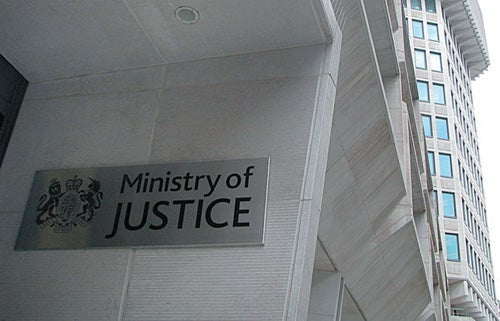A legal career can take you to the top
Lord Philip Hunt tells Dan Poole how he wants to open up the legal profession to talented students from all backgrounds

While I sat in reception at the Ministry of Justice waiting to meet my interview subject, Jack Straw strode through. As I watched the Lord Chancellor and Justice Secretary, I had to hide a smirk when, because of difficulties with his pass, he struggled to get through the security gates. If he couldn't get through, what chance did I have?
Fortunately, they did let me in and I got to meet the person I was really here to see: Lord Philip Hunt OBE, Parliamentary Under Secretary of State, a man who is responsible for legal aid and Lords reform, among other hugely important things. So, the topic of conversation was not Jack Straw's problems getting into the building, but rather the opportunities for people from all walks of life to get into the legal profession.
"No one who has got the skills and ability should think that there is any reason they can't go into law," says Hunt. "It's a great profession and it's critical in this country. We've always been very proud of that, so we must ensure that we don't lose people who don't think they're from the right background to pursue law as a career."
Hunt got a degree in political studies at the University of Leeds, before spending around 30 years in the health service. He sees comparisons between his time in the Department of Health and his current job, which he started last year. "Just before you came in, we were discussing some of the programmes for doctors," he tells me, "thinking about women in particular and the issue of people taking career breaks in their mid-thirties and what support is given to them to get back into practice, which has parallels with the legal profession. They're two of the most crucial professions."
With that in mind, what is the Ministry of Justice doing to make sure that the legal profession, whose foundations are truth and fairness, after all, is represented at all levels by a diverse section of UK society? "We've got the Equality in Justice day on 24 October, which will enable prospective law students to meet with people within the system and break down the perception of an old-boys' network," says Hunt.
A project called Barriers Leading into Law is also planned, aiming to track the progress of aspiring barristers and solicitors and give them the support of a life coach. "It's to try and ensure that people think that the legal profession is one that they can do well in, and know that it's one we want them to come into," explains Hunt. "To crack the legal profession would have enormous implications, and would be a signal to society as a whole."
Part of the problem with encouraging diversity in law could boil down to an issue of perception. Look at the top judges and QCs in the country or see how they are portrayed in television dramas and other media: the majority are well-spoken and balding. What that doesn't take into account is the law students that are coming through right now, a generation behind the people in the top jobs at the moment. Hunt quotes me some figures: 63 per cent of current law students are women; 17.5 per cent of trainee solicitors are from a black or minority ethnic (BME) background; 11 per cent of solicitors come from a BME background; and, of lawyers practising at the Bar, 11.2 per cent come from a BME background.
"But," warns Hunt, "the tragedy would be if you were to come back and speak to my successor in 10 years' time and you were still seeing the pattern with QCs and judicial appointments, where the figures for female and BME professionals are much lower. Collectively the profession has to make sure that whatever someone's background, there are no barriers to reaching the top."
As it neared the time for me leave - assuming I could negotiate my way through that security gate - I wondered what Lord Hunt has seen during his time in the Ministry of Justice to recommend law as a career? "It really is one of the most interesting professions there is to go in to. It's changing all the time: new laws, human rights legislation, and our commercial legal firms doing very well in an international sphere. It must be one of the best professions to go into. So, if people have a feel for law, they should go for it."
For more information on equality projects at the Ministry of Justice, contact Roianne Nedd on 020-7210 8809 or roianne.nedd@justice.gsi.gov.uk
Subscribe to Independent Premium to bookmark this article
Want to bookmark your favourite articles and stories to read or reference later? Start your Independent Premium subscription today.

Join our commenting forum
Join thought-provoking conversations, follow other Independent readers and see their replies